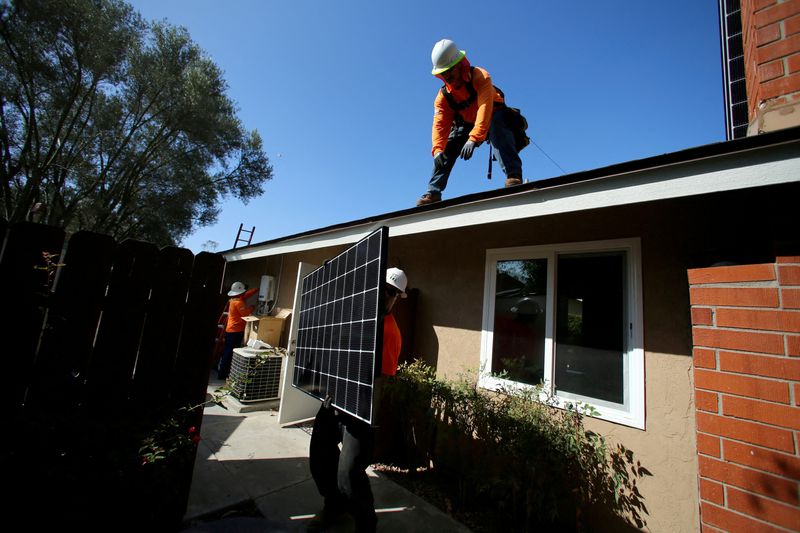By Valerie Volcovici
WASHINGTON (Reuters) - The Environmental Protection Agency on Wednesday launched a $7 billion competitive grant program that aims to give low-income communities access to residential solar panels, the latest effort by the Biden administration to expand renewable energy across the country.
The agency will make up to 60 awards to community groups around the country representing specific states, Native Americans and Alaska Natives and multi-state programs.
The grants are part of the $27 billion Greenhouse Gas Reduction Fund established by the passage of the Inflation Reduction Act, which aims to infuse "transformational" capital to communities that have not been able to attract clean energy and transportation investments and overburdened by pollution.
"This historic boost in solar investments will advance millions of residential solar projects nationwide, protect people and the planet, deliver environmental justice," said EPA Administrator Michael Regan.
Regan announced the launch of the "Solar for All" grant program in Vermont, where he joined Independent Senator Bernie Sanders to tour a residential solar project.
The awards will help communities develop low-income solar programs that will provide financing and technical assistance like workforce development and ensure that low-income households receive the benefits of rooftop solar, including household savings, community ownership and energy resiliency.
The program will guarantee a minimum 20% total electricity bill savings for households.

Communities have until Sept. 26 to apply for the grants, which will be available for amounts ranging from $25 million to $400 million.
In the coming weeks, the EPA will also launch a $14 billion National Clean Investment Fund (NCIF) grant competition to expand deployment of renewable technologies at a national scale and a competition for the $6 billion Clean Communities Investment Accelerator, which will bolster funding through community lenders.